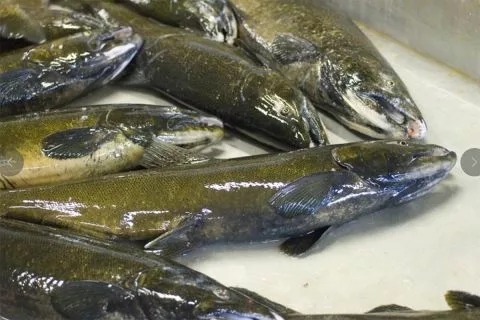The disease was found in fish during a routine inspection in early April at the Harrietta State Fish Hatchery in Wexford County, and confirmed by the Michigan State University Aquatic Animal Health Lab.
“The Atlantic salmon fishery is highly valued, but first and foremost, we have a public trust responsibility to protect the aquatic resources of the state of Michigan. Stocking fish known to be actively suffering a disease outbreak would be counter to that,” Eisch said.
A 28-day antibiotic treatment was completed on May 17 but “was not fully effective” according to the DNR. After the treatment, signs of active disease appeared in another group of fish.
The treatment is typically administered when the bacterium is first found in fish, Eisch told Bridge Michigan. However, since the fish had already contracted BKD, they were more resistant to treatment.
In the last decade, there haven’t been many cases where fish had tested positive for bacterial kidney disease but more cases where fish had the bacterium Renibacterium salmoninarum, Eisch said. Those fish were successfully treated, but this case is different.
“These fish were sick enough that a significant portion of the fish were not feeding well,” said Aaron Switzer, DNR fish production program manager. “That means that the antibiotic, which was mixed in with their feed, was not being eaten at the rate necessary to eliminate the pathogen.”
Between 20 to 30 million fish are stocked in state waters each year, according to the DNR. Over 9 million individual fish had been stocked by the fall of 2023.
